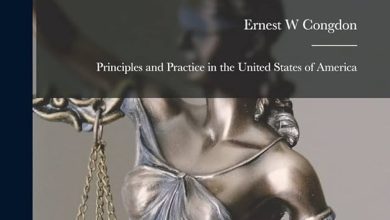Top 7 Strategies by Neil Patel to Creatively Write a Book

Neil Patel is the co-founder of NP Digital and one of the most established and successful names in the marketing industry. His tips and techniques to write engaging blog posts, doing SEO of websites and other marketing-related stuff are used successfully by many people. This blog post will talk about Neil Patel’s strategies for writing a book. Neil Patel didn’t specifically talk about it. We will write the crux of his blog posts on content writing, blog post writing, and marketing to help you understand how to write a book creatively.
7 Effective Ways to Successfully Write a Book by Neil Patel
1. Attractive Heading That hooks the Reader
Firstly, write a title that people want to click and read. Heading like ‘You should do’ and ‘You need to know’ works best to attract audiences. Secondly, the subheading under the heading is also very effective. For instance, the book Who Moved My Cheese by Spencer Johnson has a subheading ‘An Amazing Way to Deal with Change in Work and Your Life.’ Adding subheadings like this attracts the audience. It conveys that they would learn in this book to cope with the changes in their daily lives, which is an issue for most people.
2. Write in your Unique Voice
Don’t mimic or copy any famous author because you like their style and think people love reading their books so that they would love your writing too. No! they’d detest it. It can defame and damage your reputation for copying someone. People like originality. If you emulate someone, they’d not perceive you qualified enough to teach something or help solve their problem. Therefore, they won’t respect you and your writing. Think like this: do you respect a celebrity when you see him copying another star’s acting style or dressing style? No! You call such people plastic, fake and such words. The same is the case here. So write in your unique brand voice and be original.
3. Align your Tone to make your Readers Understand
You are not writing to make yourself understand. You are writing to make your audience understand. So you must know how you can make your audience understand. You need to know is their culture, preferences, hobbies, way of living, and perceiving things. You need to understand every tiny detail in depth. When you know this information about them, then you’ll be able to address their problems. You will understand what tone you need to adopt to teach them a specific thing. Your style might change during writing. At some places, you will adopt a sarcastic tone, and for some topics, you will adopt a humble and soft tone, which requires the writer’s creativity.
4. Write Epic Content
Another tip by Neil Patel to write successfully is to write epic content. Mediocre or thin content won’t benefit you in the long term, even if you successfully sell a few copies of your book because of good marketing. Negative reviews and hate would stop your success and damage your reputation as an author. By the way, this doesn’t mean to get afraid and don’t write what you want to. That’s what it means. The idea is to create unique and valuable content people need and love to read. Neil Patel suggests doing in-depth research and writing with passion. You can only write with passion if you are interested in your writing topic.
5. Use Humour, Storytelling, and Case Study Techniques
a. Humour
Humour is very important, no matter what your niche is. Mostly! Humour doesn’t mean you have to crack jokes and write puns to make someone laugh. It reflects in your tone. Have you ever observed that the most intense crime serials and novels have some instances too, that make you grin, smile, and laugh? That could be anything like the laughter of a villain, a sarcastic dialogue by a character, or something similar. If you are a talented storyteller, you can engage your readers very well.
b. Storytelling
Your storytelling must convey to the people why they should listen to you and what makes you unique. Neil Patel told one of his blog posts that storytelling is a very successful strategy. His two blog posts: How he earned a million bucks by a Ferrari and how spending $ on clothes made him $. People like stories about brands. For example, have you ever seen some company’s food boxes or websites? There’s a story written about the company’s past, how they started their business, what made them sell the food, and how they became successful.
c. Case Study
The case study needs to be one hundred percent authentic; otherwise, don’t use it in your book. If you are including someone else’s case study in your book, you must reference it in your text.
6. Edit your Book
You must not edit while you write because it will create resistance in your flow, says Neil Patel. After you complete the draft, edit it on a small screen. It is because long sentences would make you skip some words, and when you edit on a small screen, you could read them more perfectly as you don’t have to look at a wide space to read. Moreover, it is recommended that you reach out to any good book marketing services company. They’d assign editors to you that would make your book publishable.
7. Ask for Feedback
Neil Patel has said that asking for feedback is essential in several blog posts. You shouldn’t be afraid of asking your audience if they like your content. Also, take smart suggestions from people about how you can improve it.
In the End
Neil Patel said that every blogger is a writer, but not every writer is a blogger in one of his blog posts. It is because writing itself isn’t termed blogging. The main reason is that people blog for business, and they want their blog to appear on the search engine when people search for keywords. Therefore, search engine optimization of the content is necessary. A book author doesn’t write his book keeping in mind the trending keywords and what keyword he should use. That would make his writing worse. He chooses words wisely that will affect the readers even though they don’t search for specific terms on the internet.
You don’t do blogging in the same way. It is because your blog wouldn’t receive any traffic, and you wouldn’t be able to do business with it. Blogging also requires you to format your content to be easy to read. However, it is not much needed in fiction. For example, imagine if J. K. Rowling, author of Harry Potter, wrote her novel keeping SEO in mind. She would have to choose words keeping keywords in mind, which must have stolen magic away from her stories.






